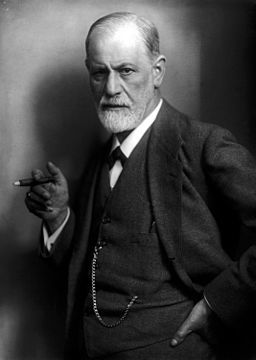
Psychoanalysis
Some Differences Between Traditional and New Therapies
From suffering to empowerment.
Posted April 20, 2017
Progress in psychotherapy research has been a very slow-moving process. Although the cognitive revolution in the 70s and 80s led to the development of a number of evidence-based treatments, old-fashioned psychoanalytic methods are still widely practiced in the U.S. and remain dominant across the globe. There are many reasons why evidence-based treatments have not gained more traction, such as the lackluster financial support, the dominance of traditional psychiatry with its biological model of the nosological system, and the poor incentive structure to disseminate effective treatments.
Over the past 10 years or so, a number of new psychological treatments have washed ashore. Many of these psychological interventions see themselves as part of the global family of cognitive behavioral therapies (CBT), despite many unique and unconventional features, such as Buddhist ideas and mindfulness-based strategies. Despite differences in theoretical models and philosophies, these new developments are beginning to converge on a practical level. They all share the conviction that the Diagnostic and Statistical Manual (DSM)—or any other classification system that merely categorizes people based on their reported symptoms—should no longer constrain treatment development. As a result, we are beginning to see a growing emphasis on core processes, emotions, values, and goals over concrete techniques to fix a specific DSM-defined “psychiatric disorder.” Psychoanalysis and other psychodynamic therapies have moved to the sideline with the emergence of these new developments, partly because most of them are firmly rooted in the traditional old-school latent disease model of psychiatry.

Psychoanalysis requires little introduction. At the risk of alienating and possibly infuriating some readers, I will summarize three reasons why I believe psychoanalysis has been cast to the sidelines in the recent developments of new treatments and why it is going to continue along this dead-end road unless it drastically changes its approach. The following three assumptions are common and false premises of the psychoanalytic approach, demarcating it from the emerging group of new therapies.
Incorrect assumption #1: The past primarily determines the present.
No doubt, the past influences us. However, we are not at the mercy of our past. To a great extent, we determine how much we let the past affect the present and our future. Countless examples show us that adversities, such as poverty, violence, and even abuse, do not have to control our lives. For some of us, these experiences might even provide us with opportunities for further growth. We are the ones who control our lives; we are the ones who choose if we want to give up and give in or if we decide to regain control. The bottom line is: Live in the here and now, not in the past, and rely on your resilience.
Incorrect assumption #2: Insight resolves the problem.
Knowing that something in the past might have contributed to a problem in the present does not magically solve the problem. Furthermore, the reason why a problem develops in the first place is not necessarily the same reason why a problem persists. In fact, most of the time, the reason why a problem persists in the present is quite different from why the problem developed in the first place. Therefore, for a treatment to be effective it needs to focus on the maintenance factors (the reasons why a problem persists), not the initiating factors (the reasons why the problem first developed).
Incorrect assumption #3: The unconscious rules.
Psychoanalysts are often desperate to explain and search for the meaning of behaviors and feelings. This is a human desire, but it is also a common human error. Sometimes a cigar is just a cigar (to cite Freud himself). This issue boils down to free will, which has been contemplated by the stoic Greek philosophers and virtually every major religion. On one extreme, determinism claims that there is no free will; on the other extreme is free choice. Regardless of which position is correct, embracing determinism will almost certainly ensure that we will live a miserable life, because there is not much we can do to improve our current situation.
New therapies avoid these problems; new therapies are evidence-based. They are rooted in theoretical models that can be empirically tested and falsified in experimental tests or clinical trials. New therapies are unchained and unconstrained. They derive concrete treatment techniques from many scientific disciplines, especially from neurosciences, emotion sciences, and behavioral sciences (many of these techniques can be found in my books).
The good news is that it we have control over our own destiny and other people’s well-being; the bad news is that we are the ones who need to accept responsibility and act accordingly rather than blaming others or past events for our suffering.

